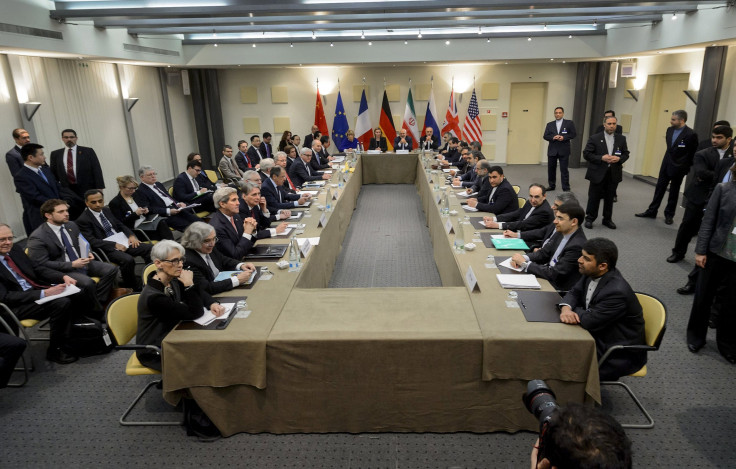Iran Nuclear Talks Update: World Powers, Iranians Remain Apart On Several Key Deal Negotiating Points

Update as of 6:24 a.m. EDT: Foreign ministers of the six world powers and Iran met in Lausanne, Switzerland, for an hour on Monday, to put together the initial details of a nuclear deal even as a self-imposed deadline draws near, Reuters reported.
However, the talks could still fall apart, the report added, citing officials. "I can't rule out that there will be further crises in these negotiations," German Foreign Minister Frank-Walter Steinmeier reportedly told the media.
U.S. Secretary of State John Kerry, Iranian Foreign Minister Javad Zarif, British Foreign Secretary Philip Hammond, French Foreign Minister Laurent Fabius and Russia's Sergei Lavrov and China's Wang Yi, were among the leaders present at the meeting, according to Reuters. The leaders are expected to meet again later on Monday.
Original story:
With less than 48 hours left before a self-imposed deadline for negotiating an agreement on Iran's nuclear program, officials on both sides have cautioned attempts to reach a preliminary deal by the deadline could still fall apart. The foreign ministers from the six major world powers hold their first full meeting with their Iranian counterpart Monday as Israel remained gravely concerned with early details of a framework agreement, Reuters reported.
The New York Times reported Iran backed away Sunday from an agreement to ship its stockpile of enriched uranium to Russia so it cannot be used for weapons in the future. Agence France-Presse said Deputy Foreign Minister Abbas Araqchi said Iran has no intention of giving up the material having spent billions of dollars to amass it.
The six world powers want a more than 10-year suspension of Iran's nuclear program. The Iranian government, which has denied trying to develop nuclear weapons, wants an immediate end to crippling international sanctions that are depressing its economy. Deep disagreements remained on several other points in the negotiations, but both sides said a preliminary deal was nearing, Reuters reported. A document summarizing the preliminary deal may or may not be released.
Western powers reportedly considered allowing Iran to conduct limited, closely monitored enrichment-related work for medical purposes. An Iranian negotiator said finer details on the types of enrichment work -- such as a continuation of research into new generation centrifuges that can purify uranium faster and in greater quantities -- were on the agenda.
Israel, believed Middle East's only nuclear power, is not a party to the talks and has previously threatened to attack Iran if it is not happy with the negotiated agreement. "This deal, as it appears to be emerging, bears out all of our fears, and even more than that," Prime Minister Benjamin Netanyahu told members of his cabinet in Jerusalem. "The Iran-Lausanne-Yemen axis is very dangerous to humanity, and must be stopped," said Netanyahu, referring to the advances made by Tehran-allied Houthi rebels in Yemen.
© Copyright IBTimes 2024. All rights reserved.












